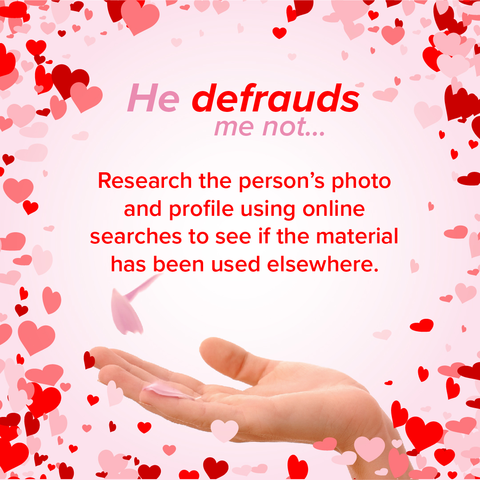GUEST BLOGGER
Courtney Pedersen
ACFE Communications Coordinator
When the poet Alfred, Lord Tennyson wrote his famous line, “‘Tis better to have loved and lost than never to have loved at all,” I’m sure the possibility of romance scams hadn't crossed his mind. Victims of romance scams can lose time, money and confidence. In 2011, the FBI’s Internet Crime Complaint Center (IC3) received 5,600 complaints from victims of so-called “romance scammers.” The victims reported collective losses of $50.4 million.
These scams involve con artists who work their way into your heart and eventually into your pocketbook by infiltrating chat rooms, dating sites and social networking sites. Here are a few examples of how these scammers work:
In 2012, Debbie Best met a handsome man, John, on an online dating site. According to his profile, he owned an antiques store in Florida. After getting closer John claimed that, while travelling to the UK and Nigeria, he had become financially stuck and unable to travel home. He asked her for money and called her daily, eventually telling her that he could not even afford to eat. She wired him two payments of $250, not realizing until after the money was sent that his fake name was known online and being used in other scams. She also received the phone bill for the calls John made to her which totaled $1,000.
Recently in Quebec, Canada, William Reid was a victim of an online Valentine’s Day scam. He was speaking online to a woman who called herself Jane. Jane was from Africa, and Reid wanted to fly her to his location so that they could live happily ever after. As Jane was travelling closer to Reid there were a series of unfortunate events that cost him more and more money. In the end he was stood up and out $10,000.
In another story that was featured on “Dr. Phil,” a widow named Norma fell in love with Richard on the online dating site ChristianMingle.com. After they met she soon began sending him money for cars, computers and even money to loan his friends. Richard, who supposedly lived in North Carolina at the time they began talking, created a story that he moved to Ghana to explain why the money was sent overseas. For two years Norma and Richard planned their future together, which even included adopting an orphan in Ghana. Norma eventually learned that photos of Richard were actually photos of another man named Bill in the U.S. that were stolen from Facebook. Over the course of three years Norma sent Richard a staggering $300,000.
With these examples I can’t help but wonder whether Alfred, Lord Tennyson should have put a disclaimer next to his famous line. If you feel that you or a loved one has been duped in an online dating scam visit IC3’s website and file a claim.



